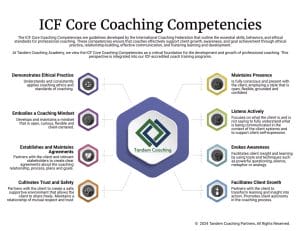Hi, Cherie here. Navigating the complexities of agile transformations requires a nuanced approach to coaching, one that empowers leaders and executives to take meaningful action and hold themselves accountable. Drawing from my experience and the foundational principles of action and accountability in coaching, I’m sharing four strategies that can dramatically enhance how leaders operate in agile contexts.
1. Ownership of Action Plans: Empowering leaders begins with ensuring they own their action plans. This means encouraging leaders to define their steps forward, based on insights gained through coaching sessions. It’s not just about setting goals but committing to actions that are aligned with their personal and organizational values.
2. Personalized Accountability: Accountability is not one-size-fits-all. Each leader must have a tailored accountability plan that resonates with their unique circumstances and aspirations. This involves identifying potential obstacles, determining support systems, and establishing personal metrics for success, ensuring that leaders not only envision their path forward but also commit to navigating it diligently.
3. Continuous Learning and Adaptation: Agile transformations are dynamic, requiring leaders to continuously learn and adapt. Encourage leaders to see each action as part of a larger learning loop, where outcomes are not just achievements but opportunities for deeper insight. This mindset shift from a linear progression to a cyclical growth model fosters resilience and adaptability.
4. Celebrating Progress: Recognizing and celebrating progress is crucial in sustaining momentum and motivation. This doesn’t mean waiting for major milestones; even small achievements deserve recognition. Celebrating progress reinforces positive behaviors and outcomes, making accountability less about oversight and more about constructive support.
These strategies not only foster a culture of accountability and action within agile environments but also contribute to the personal growth of leaders, enabling them to navigate challenges more effectively and inspire their teams to do the same.
Until next time, Cherie 💚

Unlock Your Coaching Potential with Tandem!
Dive into the essence of effective coaching with our exclusive brochure, meticulously crafted to help you master the ICF Core Coaching Competencies.
"*" indicates required fields
About the Author
Cherie Silas, MCC
She has over 20 years of experience as a corporate leader and uses that background to partner with business executives and their leadership teams to identify and solve their most challenging people, process, and business problems in measurable ways.
















